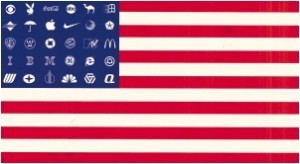The interests of the market — and the wealthy elites and corporate interests that have taken control of it — generally don’t align with the interests of the general public.
By Mike Stout
SOURCE: http://inequality.org/happened-public-good/
Over the past several decades, we as a society have disproportionately emphasized market-based solutions to social problems.
The influence of money on politics in the United States has led to a corruption of the political process.
As a result, when we debate policies at the local, state, and national levels we start with the assumption that “free markets” are the answer, and that government should do as little as possible to regulate or interfere with the market. This discourse has been widely adopted by both major political parties in the United States.
The problem with this approach to policymaking is that the interests of the market, and the small number of wealthy elites and corporate interests that have taken control of it, generally don’t align with the interests of the general public.
The market has one objective — to produce profits. Profits are generated through competition. However, profitability and competition often come at the expense of the natural environment in the form of pollution, at the expense of living wages for low-skill workers, and at the expense of opportunity, which becomes more highly concentrated into a relatively small proportion of people’s hands as they accumulate wealth at a rate that is faster than economic growth (as Piketty so elegantly illustrates in his book Capital in the 21st Century).
As wealth and income have become increasingly concentrated into fewer and fewer hands, so have political power and influence over the policymaking apparatus. The influence of money on politics in the United States is staggering and has led to a corruption of the political process. The result is crony capitalism.
The influence of money on politics in the United States is staggering.
In the current political and economic climate, the only time the general public benefits from the policymaking process is when their interests are aligned with the elites who control the policymaking apparatus. These elites, who make up less than 1 percent of the American population, are able to control policy through their disproportionate influence in the selection of candidates (who need tons of money to increase their chances of being nominated and winning the election), and through the employment of an army of lobbyists to make sure elected officials never forget how they got elected in the first place. This has resulted in a system where policies are proposed that disproportionately benefit wealthy elites and corporations who essentially own our elected officials.
The deregulation of financial markets, the lack of enforcement of environmental protections, and the dismantling of the progressive tax code through loopholes that lead to lower effective tax rates for wealthy individuals and corporations, all come at the expense of the public good.
The discourse surrounding free market policies has placed a greater emphasis on the private sector, and has made “government” a bad word. It has also made rational debate about the most appropriate way for policymakers to actually address the needs of the general public virtually impossible.
The discourse surrounding free market policies has made ‘government’ a bad word.
As if that weren’t bad enough, free market ideology has also had a disastrous effect on civil society. Individualism and competition have become increasingly engrained in our ways of thinking and talking about the causes of, and solutions to, pressing social problems. This has allowed the market to have a disproportionate influence on our political system, and has degraded civil society and civic engagement. It has therefore become nearly impossible to even discuss or debate policies that promote collaboration and cooperation, which would strengthen civil society and advance the public good.
My point here isn’t that the market is good or bad, or that the government should solve all of our problems. That’s a false dichotomy. My point is that we need a better balance among the market, the state, and civil society. The disproportionate influence of the market on the state and civil society has created problems for the functioning of our economy, as the benefits of economic growth have disproportionately gone to wealthy elites. And as money has taken over our politics, our citizens have become less trusting, more alienated, and more socially isolated.
That the market or government should solve all of our problems is a false dichotomy.
If we want to solve the pressing issues of our time, we need to change our political discourse from one which focuses solely on competition, the market, and the individual, to one which focuses on the value of community, civil society, and the public good. The market and the government should distribute resources in ways that support civil society and empower communities. Civil society, in turn, should use those resources to promote opportunity and to empower citizens, so that their needs are adequately addressed through the policymaking process.
In a social system where the market and the state operate in the interest of civil society, everyone benefits.
Dr. Mike Stout is an Associate Professor of sociology at Missouri State University. His research interests are in the area of applied/public sociology, with a specific focus on economic inequality and its relationship to social capital, civic engagement, and community and economic development.

